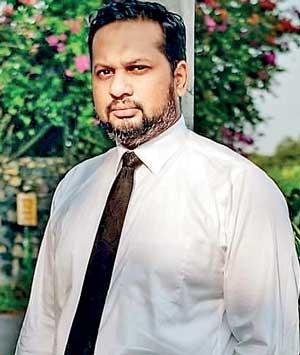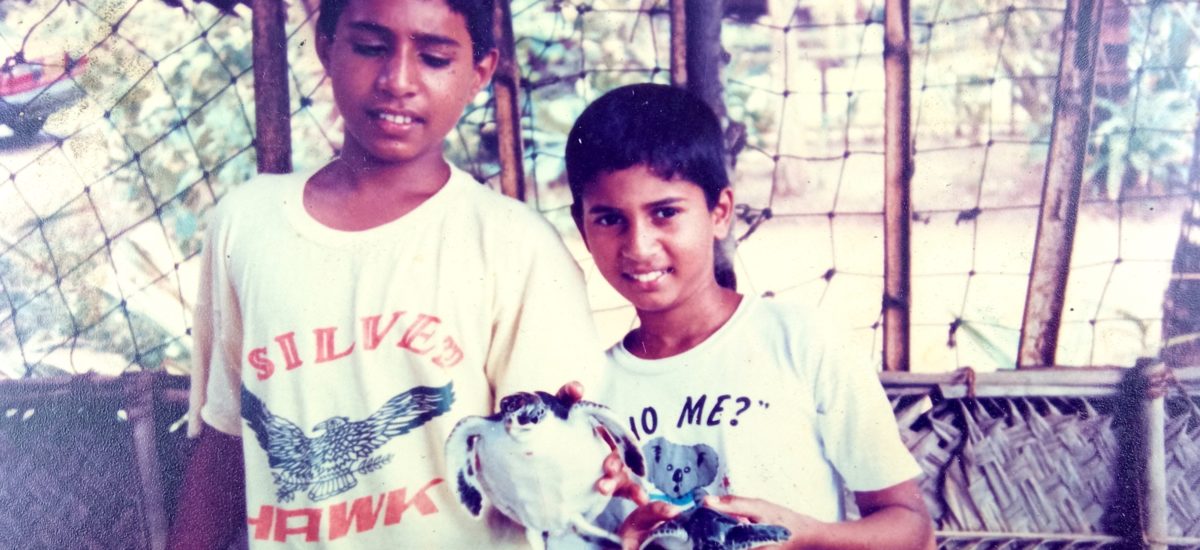
Following submissions by Defence Counsel that the Criminal Investigations Department is selectively reporting facts to the Magistrate in order to malign Hejaaz Hizbullah, Fort Magistrate today ordered the Criminal Investigations Department to submit a report of all statements obtained by them from persons relating to the investigations of Hizbullah.
When the case was taken up today. Counsel for the Defence informed Court that the Criminal Investigations Department had obtained statements from all persons of the Save the Pearls Charity and the Teachers and Board of Management of the Al-Zuhriya Madarasa.
However, none of those statements had been produced to date.
They said that the statements would reveal that all the allegations made by the CID are a fabrication and were made in order to malign Hizbullah and that the suppression of those statements is because it would vindicate Hizbullah of the charges against him.
Magistrate Ranga Dissanayake ordered to submit a comprehensive report containing all statements made by persons in the investigations related to Hizbullah.
Earlier the Magistrate also ordered the CID to submit a report on the investigations into how confidential statements were leaked to the media. Two confidential statements made by children had been leaked to the media and the Magistrate ordered an investigations as to how these statements were leaked when they were made only to him.
The Western Province DIG failed to submit any report on the investigations today after which the Magistrate made order to submit the report.
Hejaaz Hizbullah a prominent Lawyer was arrest on the 14th of April 2020, under the Prevention of Terrorism Act. The Criminal Investigations Department filed reports stating that children of the Al-Zuhriya Madrasa to whom Save the Pearls – a charity in which Hizbullah was the President – had said that they were given weapons training.
The Children with their parents filed Complaints to the Human Rights Commission and the Supreme Court alleging that they were coerced into giving statements after being taken alone without their parents throughout a period of 3 days, from dawn to dusk.
https://www.colombotelegraph.com/index.php/hejaaz-detention-fort-magistrate-orders-cid-to-submit-all-statements-obtained-in-investigations/
- What made him more enigmatic was that unlike most others in his profession who shield their lives beneath a calm facade, he taught exceptionally well
- Apparently he called the Easter attackers “fools who died as fools.” I can picture Hejaaz saying that

There’s an image of Hejaaz Hizbullah I return to over and over again. It’s an image of him holding a placard at a protest in 2018. The placard reads, “Asilachaara parliamenthuwak wenuwata seelachara parliamenthuwak” (“A cultured parliament in place of an uncultured parliament”). The reason why it resonates with me is that, even in the ecstatic way he holds it, he is quite unlike the Hejaaz Hizbullah I once knew. But then I realise that the Hejaaz I once knew couldn’t have been the real guy.
I first encountered the man in 2013 at my law school. He didn’t lecture us until two years later, in our third year. It would be quite unbecoming of me to say he exuded a critical, even dispassionate, distance between himself and his students. But say it I will. Hejaaz never seemed to get emotionally involved with what he taught. He came, he lectured, he made sure we understood what he said, and he left. I never saw him thereafter, not even at the many functions and events organised by my law school. At first, and for years afterwards, I assumed he was too busy with his practice to think of life outside lecture halls and chambers and courts. I couldn’t have been more wrong about a person.
Hejaaz was the most enigmatic lecturer I ever came across. What made him more enigmatic was that unlike most others in his profession who shield their lives beneath a calm facade, he taught exceptionally well. Lecturers resort to secrecy because they know they’re not good enough, and know that their students know. Not this lecturer. That could mean only one thing. He was so deeply committed to his other lives that he couldn’t let those other lives interfere with this one. Underneath that dispassionate smile and frown, then, there was another man. A good man.
I gradually realised that in addition to his practice and his activism, he was also a writer. At the time I was sitting for my A Levels in 2011, he wrote a particularly well thought out piece on the issue of the burka ban in France. Bizarrely enough, his stance on the problem – back when burkas and the identity of Muslim women and men were spreading like wildfire throughout Europe – coincided with the views of the very same Sinhala Buddhist nationalist crowd that demonises him as a terrorist sympathiser today. No less an articulator of this ideology than Professor Nalin de Silva said that the burka ban made clear the identity crisis in Western civilisation: in its quest to balance the demands of a White Christian majority and the reality of multiculturalism, Europe was imposing restrictions on displays of Muslim identity under the convenient excuse of “emancipating” Muslim women
When burkas and the identity of Muslim women and men were spreading like wildfire throughout Europe – coincided with the views of the very same Sinhala Buddhist nationalist crowd that demonises him as a terrorist sympathiser today
Hejaaz underscored this point a year later in a piece on the controversial anti-Islamic short documentary, Innocence of Muslims: “Even in the way the West defines free speech, it is not an unfettered, untrammelled absolute right. It is pegged in and restricted. Under the standard narrative, in deciding whether to decree something as free speech or not, there is a need to balance competing considerations but when it comes to Muslims, what we see is not a balance but really a bias. There are examples a plenty.” Now this is just about the same point Nalin de Silva and the Jathika Chintanaya have been making in column after column. It is a point I agree with and it couldn’t be any more correct.
All that, however, is peripheral to my main point. More than Hejaaz’s arrest, which raises concerns that I, as a mere law student, am neither qualified nor able to address or assess, what distresses me is that infamous “court of public opinion” which automatically deems him a terrorist supporter and financier. When did “innocent until proven guilty” jump out of the window, reduced to an empty, meaningless phrase?
I would dare to call Hejaaz a reminder of a generation of educated, progressive Sri Lankan Muslims, whose stand on communalism of all forms attracts ire from extremists and praise from moderates. Apparently he called the Easter attackers “fools who died as fools.” I can picture Hejaaz saying that. It was in him. It couldn’t have been anyone else. Certainly not any of the mainstream Muslim MPs we have today.
I have seen the moderate Muslim, and I know in retrospect that he or she is a more complex human being than what either side of the divide prefers to see. The moderate Muslim is not necessarily opposed to burkas, but neither is he or she with those who wish to radicalize the Muslim population in the country by emphasising on Muslim-ness as opposed to Sri Lankan-ness. The moderate Muslim is opposed to the little Arabias that sprang up in the East of this country, under the watch NOT of a minority party but of a UPFA Muslim MP, but he or she is just as fervently opposed to those who try to make it out that this, somehow, represents the entirety of the Muslim race in the country. The moderate Muslim is seen as fitting a specific stereotype: he or she is invariably English educated, middle class, fluent in Sinhala and not just in Tamil, and outspoken against Islamisation. In many cases, this is true. Certainly, it is true of the St.Thomas’ educated, bilingual, and outspoken Hejaaz Hizbullah. But even then, they are not willing to concede to their own stereotype.
Indeed, you’d be surprised to know that the same man demonised as a terrorist today wrote the following at the height of the halal (non-)issue in 2013:
‘Who needs ‘halaal’ certification? It’s certainly not the Muslim consumer, but the businesses that crave for halaal recognition. I say this because there was a time before [the] halaal certification. Even then there were brands that had established consumer goodwill and trust to the effect that their products were ‘halaal’... To those thinking only in religious terms, ‘new’ translates often to ‘non-Muslim’ as Muslim businesses find it easier to establish consumer goodwill even without [the] certification.So as a Muslim consumer, the future of halaal certification does not trouble me.”
Extremist? Jihadist? Al-Qaeda supporter? Hardly.
I think Hejaaz’s arrest is a symptom and symbol, of a great many among us who are ready to throw stones, swords, knives, and daggers at anyone suspected of something, anything. But even a cursory examination of the man’s record should, as it will, confirm that the values he has purported to stand for are at odds with their image of him.
I think Hejaaz’s arrest is a symptom and symbol, of a great many among us who are ready to throw stones, swords, knives, and daggers at anyone suspected of something, anything
It is pointless, as certain commentators tend to do, to throw stones at and cast aspersions on this administration. Hejaaz Hizbullah’s arrest was made under the present regime a year after Dr Shafi’s arrest under a regime led by the now Opposition. Who’s kidding who here, if all we do is trace the contours of racism to a particular government without realising, and of course conceding, that this is an institutional (and institutionalised) problem? These arrests have already been validated, by a crowd only too eager to portray even the most moderate of moderates as villains of the piece. It’s all scripted. The players need only take their places. Hejaaz certainly has. And so have many of us.
It didn’t have to be this way.
This e-mail address is being protected from spambots. You need JavaScript enabled to view it
http://www.dailymirror.lk/news-features/Hejaaz-Hizbullah-Symptom-and-symbol/131-194468


